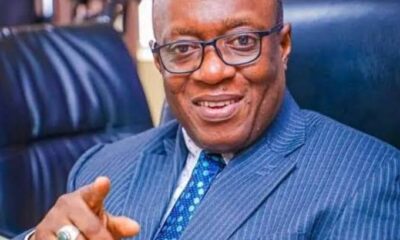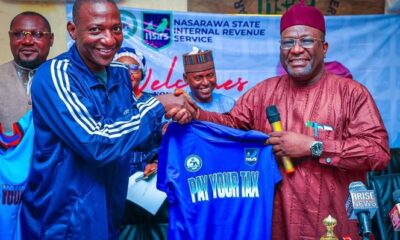Opinion
Bokkos Massacre: Ordeal of a Survivor as Plateau, Nasarawa Residents Cry for Justice

From Abel Zwànke, Lafia
For Uren, a secondary school student from Hurti village in Daffo, Bokkos Local Government Area of Plateau State, life once revolved around school, farming, and the cherished rhythms of community festivals. But today, all that remains is grief, trauma, and the haunting sound of gunfire echoing through memories soaked in blood.
“We were just farming,” she recalled in a trembling voice. “Clearing the land with my parents and siblings when the bullets and bikes came. I saw them—five men with guns, but they chose knives.”
Uren’s chilling account paints a picture of horror that words struggle to contain. Her parents had brought her and her five siblings to the farm early in the morning to beat the heat. Then came the sound—motorcycles humming death, gunshots tearing through the silence, and smoke curling skyward from burning homes.
Gov. Ododo’s aide, Isah hails Kogi journalists for objective reportage
The invaders, suspected Fulani militias, moved swiftly, killing indiscriminately, chanting religious slogans, and vanishing as quickly as they came. Uren and a few of her siblings survived by hiding in a narrow hole.
Their parents and brother outside—left to face the slaughter. Her father was butchered. Her brother bludgeoned. Her two sisters, left sick at home, were also murdered.
“My mother urinated on herself from fear. My father just sat, blood pooling beneath him. My brother—my brother was beaten, cut, and left for dead,” she whispered.
The pain was not just in the deaths, but in the chilling normalcy of the violence.
A Pattern of Violence
This tragedy is not isolated. From Jos to Riyom, Barkin Ladi to Bassa, and now Bokkos, Plateau State has become a theater of coordinated terror. Villages are razed, families slaughtered, and survivors left traumatized, with little hope of justice.
Stanley Augustine Kavwam, a lecturer at the Federal University of Lafia and Deputy National Publicity Secretary of the Middle-Belt Forum, condemned the attacks, saying the situation has exposed a disturbing pattern of impunity.
“The world only burns when the fire reaches your doorstep,” he lamented. “But this fire—this plague of death—is burning uncontrollably. The silence from authorities is no longer ignorance. It is complicated.”
He referenced the recent Supreme Court ruling that sentenced David Jackson, a young man from Adamawa, to death for defending himself against an attack by suspected Fulani assailants.
“What justice is this,” Kavwam asked, “when killers roam free, yet a victim is hanged for refusing to die?
”Voices from Nasarawa
In Lafia, the capital of neighboring Nasarawa State, members of the Plateau Indigenous Development Association Network (PIDAN) held a solemn gathering. Mr. Dawus Tela Francis, Chairman of the association’s Lafia branch, spoke with our Correspondent, expressing outrage over the killings.
“This is beyond painful. It is barbaric and inhumane,” he said. “We demand that the government at both state and federal levels rise to their constitutional responsibility of protecting lives and property.”
Mr. Francis emphasized that although many Plateau indigenes reside in Lafia, their hearts remain tethered to their ancestral homes.
“No community should live in constant fear. It is unjust. It is unacceptable. These attacks must be investigated, and those responsible must be held accountable.”
A Call for Action
The repeated failure of security agencies to prevent or adequately respond to these attacks has stirred widespread anger among affected communities. The federal government’s silence, coupled with lopsided judicial decisions, fuels a sense of abandonment.
“How long do you bow to a system that does not value your blood?” Uren asked. “How long before the survivors become defenders—not out of bravery, but necessity?”
Her question is not just rhetorical—it is a warning. A warning of what happens when a person pushed to the wall has nowhere else to turn.
As Uren clings to what little is left of her world, and as communities mourn yet again, one truth echoes louder than the rest: memory soaked in blood never forgets.

















